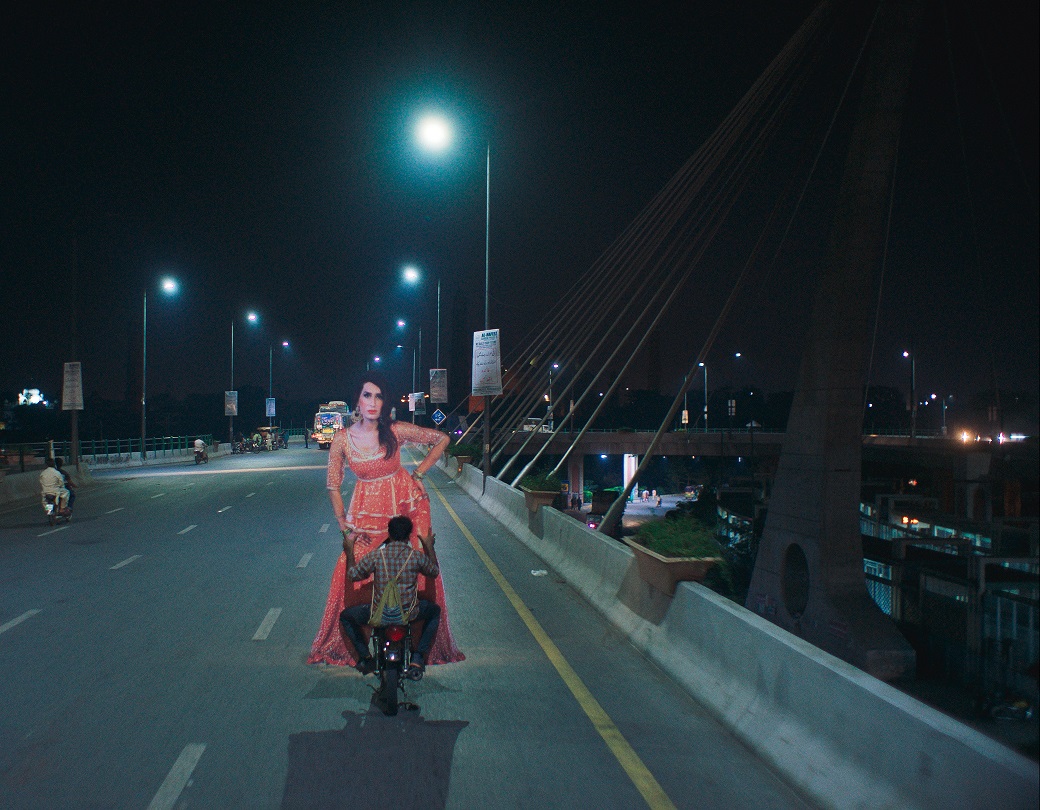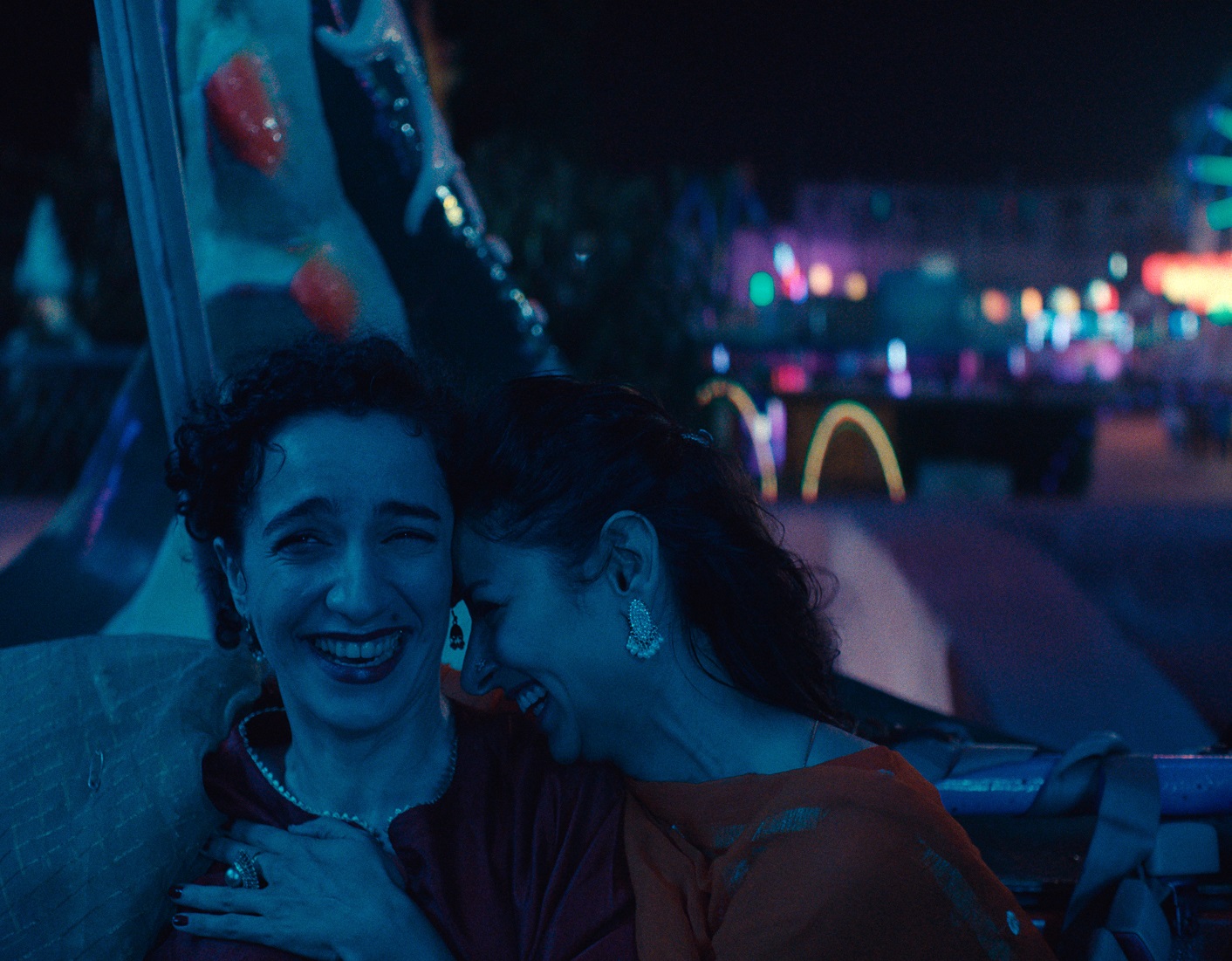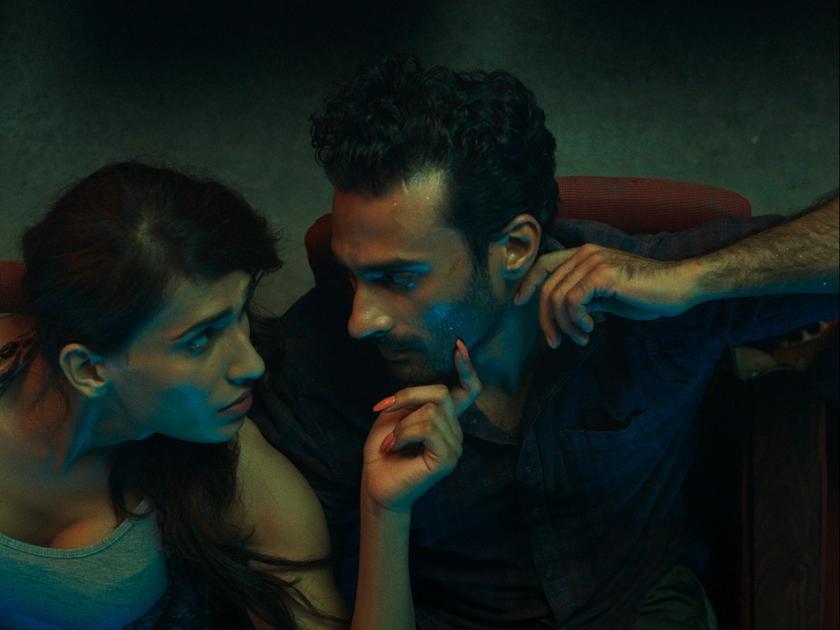Partially banned in Pakistan, Saim Sadiq’s debut uses a young man’s affair with a trans woman to reveal the sadness and brutality of the nation’s patriarchal norms. It’s also a deeply sympathetic character study written from under the country’s skin, which Sadiq calls “a heartbroken love letter to my homeland”.
Haider (Ali Junejo) is casually bullied by older brother Saleem (Sohail Saheer) and ageing patriarch Rana (Salmaan Peerzada) for his lack of machismo. It’s his wife Mumtaz (Rasti Farooq) who seizes a knife from him to slash a goat’s throat, its blood pooling darkly on courtyard tiles, and goes out to work while he cooks. Reluctantly accepting a job as an erotic club dancer for trans diva Biba (Alina Khan) and falling for her, the consequences unravel the family.
Such accepted (relatively chaste) clubs in a conservative society punctures foreign stereotypes, as does Haider and Biba’s first kiss, faces lit by green neon constellations in the urban half-dark, a scene cut in Pakistan. It’s the invisible barriers to strong but subjugated women which brutalise. Mumtaz is a modern woman forced to give up work she relishes once Haider is employed, baffled but sadly helpless, her brief arguments evaporating against the peremptory authority of Rana and Saleem, whose words crash down like iron gates. Pregnancy only makes her caged future clearer. Haider meanwhile relaxes into the freedom of his gender-loosened life, though even here he’s bullied for loving Biba. When the lovers row, his silhouette paces hopelessly against flowered glass, like a butterfly in a bell jar.
Haider meanwhile relaxes into the freedom of his gender-loosened life, though even here he’s bullied for loving Biba. When the lovers row, his silhouette paces hopelessly against flowered glass, like a butterfly in a bell jar.
Sadiq leavens Joyland with wit and warmth, from backstage bitching (“No milk in your bra, just blah blah blah!” a female rival taunts Biba, who snaps back with her “tongue like scissors”) to Haider’s hapless stewardship of a giant Biba cut-out (pictured above), which looms from the family roof like a ludicrous beacon of his sexual alter ego. Mumtaz, still more isolated by Haider’s absence, seeks her own solace in voyeurism and aircon unit vibrations. Her night with sister-in-law Nucchi (Sarwat Gilani, pictured below right with Farooq) in the Joyland amusement park is the peak of their female friendship, though even here harassment and a chain of punishing consequences follow. Sadiq films Lahore with sensuous intimacy, capturing its rolling rooftop heights and nocturnal neon, narrow streets and inevitable power-cuts. His affection for his characters and city is clear, even as the thoughtless cruelty of patriarchal limits is laid out with remorseless clarity. As with most societies, most men and women go along with the way things are. But just as Biba marches with wild defiance, so Mumtaz can’t pretend to speak the easy language of household chores and eager pregnancy. Haider is diminished too; unmanned painfully by his bullying elders, then gratefully by Biba.
Sadiq films Lahore with sensuous intimacy, capturing its rolling rooftop heights and nocturnal neon, narrow streets and inevitable power-cuts. His affection for his characters and city is clear, even as the thoughtless cruelty of patriarchal limits is laid out with remorseless clarity. As with most societies, most men and women go along with the way things are. But just as Biba marches with wild defiance, so Mumtaz can’t pretend to speak the easy language of household chores and eager pregnancy. Haider is diminished too; unmanned painfully by his bullying elders, then gratefully by Biba.
It’s a story told in different times and places: in the USA in the Fifties in Carol (2015), France in the Sixties in Happening (2022), and Chile now in An Exceptional Woman (2017), as trans, gay or straight women are diminished and crushed.
Biba’s relatively incidental, unremarked transgression strikes a quiet blow for trans acceptance, in solidarity with all the ordinary outsiders in this warm, witty tragedy.















Add comment